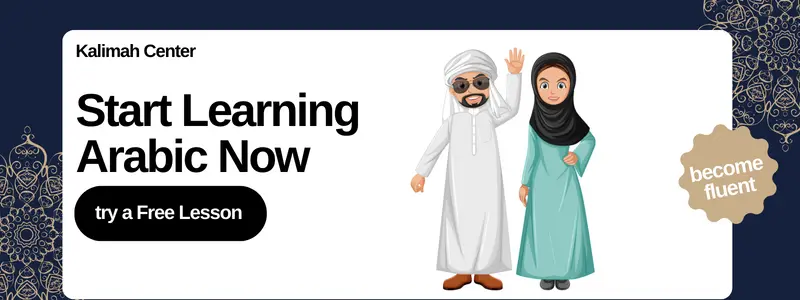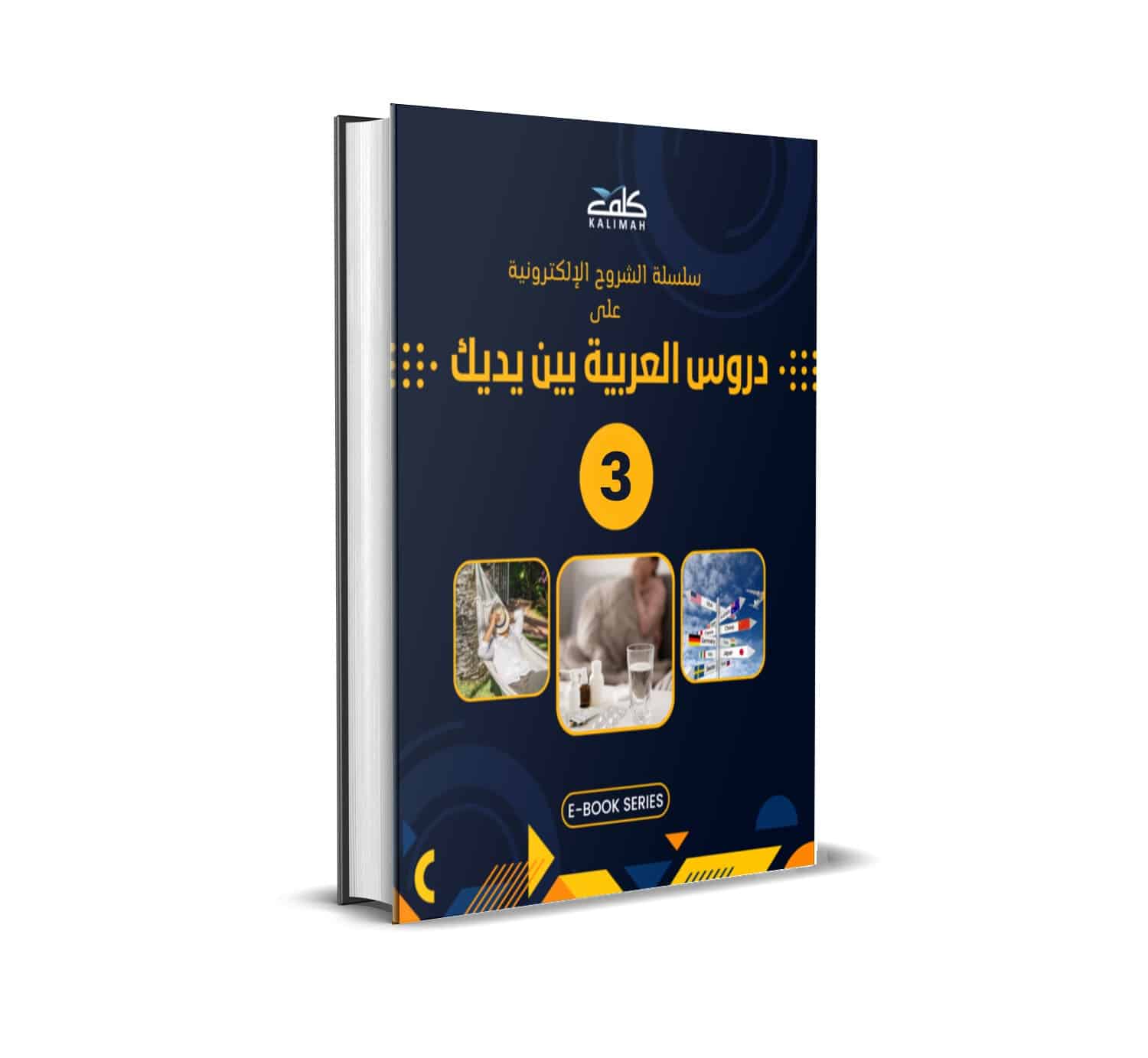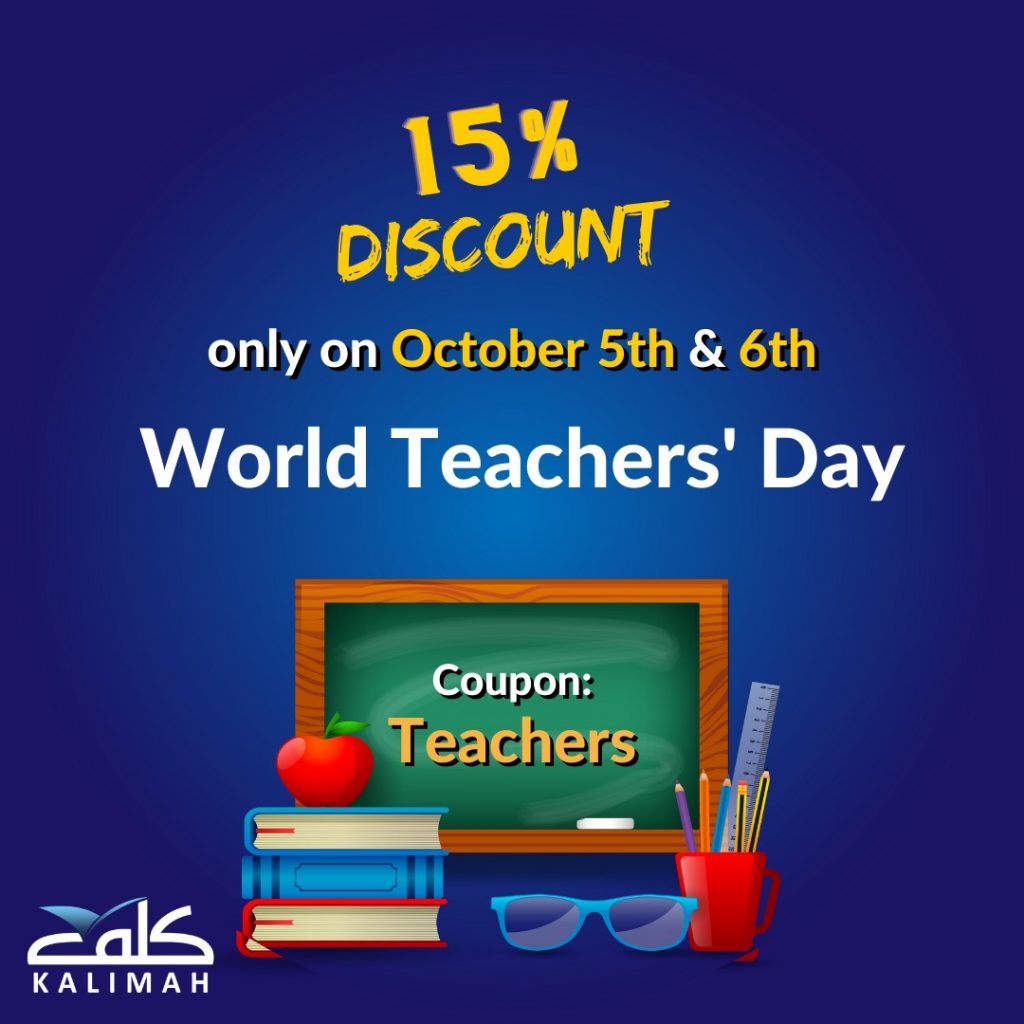In a Nutshell: Why Learn Arabic?Learning Arabic is like unlocking a magical world of rich culture, profound spirituality, and vibrant opportunities. It’s your key to stunning poetry, elegant script, and unique career paths. Without it, you miss the chance to fully experience and connect with a treasure trove of global wonders.
Are you debating whether learning Arabic is worth the effort? Unsure about the real-world benefits or potential drawbacks?
I’ve had the privilege of guiding many students on their Arabic learning journeys. Learning Arabic is an investment in your future—a decision that can reshape your personal and professional life. Allow me to share some of the most common motivations, infused with stories and reflections from my experiences.
In this article, we’ll explore the question “Should I learn Arabic?” We’ll discuss the reasons to learn this language, its importance, and the advantages it offers. However, we’ll also address the potential disadvantages and challenges. Additionally, we’ll consider what you might miss out on if you choose not to learn Arabic.
By the end, you’ll have a clearer understanding to help you decide if learning Arabic is right for you.
Should I Learn Arabic?
Yes, Of course, you should learn Arabic. When I first began teaching Arabic online, I encountered many students who were unsure about embarking on this linguistic journey. “Should I learn Arabic?” they’d ask, eyes wide with curiosity and a hint of apprehension. As a native Arabic speaker and passionate educator, I always respond with an emphatic “Yes!”
But let’s explore why this question often arises and how understanding the goal of learning Arabic can help guide your decision.
What Is the Goal of Learning Arabic?
Understanding the reasons behind learning Arabic can provide clarity and motivation. For many, the goal is to gain a deeper understanding of the Quran and Islamic texts. For some, it’s a way to connect with their cultural heritage.
For others, it opens up new career opportunities, especially in fields like international relations, business, and academia. Arabic is not just a language; it’s a key to a rich cultural and historical legacy.
When you take steps to learn Arabic, you gain access to a wealth of literature, philosophy, and religious texts, including the Quran. This connection to a deeper cultural and spiritual understanding can be profoundly enriching.

Why Learn Arabic? Main (Reasons to Learn Arabic
Importance of Arabic lies in being a bridge to a rich tapestry of history, culture, and spirituality. Allow me to take you on a journey, sharing the many reasons why learning Arabic can be a transformative and enriching experience:
1. Connect with the Quran and Islamic Heritage
For many Muslims, learning Arabic is a spiritual journey. It allows you to connect deeply with the Quran, understanding the words as they were revealed. One of the students, mentioned, “I’m Muslim, and it would help me connect more with the Quran. It’s also my husband’s first language, and it would be nice to talk to him in it.” This connection to the sacred text can be profoundly fulfilling and enhance your spiritual practice.
Do you yearn to get closer to the Quran? To understand Allah’s revelation and recite it beautifully, like a native speaker? Your journey begins here.
At Kalimah Center, we offer a comprehensive Quran course to master Quran recitation and internalize Tajweed rules. Our course is led by Ijazah-certified teachers with extensive experience teaching non-Arabic speakers.
Click Here Get Your Quran Course Free Trial
2. Cultural Immersion
Arabic is a gateway to understanding and appreciating a rich and diverse cultural heritage. From stunning calligraphy to intricate poetry, the beauty of the Arabic language is unparalleled. A fellow enthusiast says, “Arabic is just beautiful. The script, the sounds, the idea of triliteral roots, the grammar – the word formation, and the art of syntax.” By learning Arabic, you can delve into the literature, music, and traditions of Arabic-speaking countries, experiencing them in their most authentic form.
3. Professional Opportunities
Arabic is one of the most spoken languages in the world, 400 million people worldwide and is the official language in more than 20 countries, making it a valuable asset in many professional fields.
Proficiency in Arabic can open doors to careers in international business, diplomacy, translation, and more. Employers often seek bilingual candidates who can navigate the cultural and linguistic nuances of Arabic-speaking regions. Whether you’re working in international business, diplomacy, or education, being proficient in Arabic can open doors.
4. Personal Fulfillment and Cognitive Benefits
Learning a new language like Arabic can be incredibly rewarding on a personal level. It’s not just about the practical benefits but also the joy of mastering a complex and beautiful language.
Othman, who is half-Arab, expresses, “I see that side of the family a lot, and I love a lot of parts of the culture.” Engaging with Arabic can also enhance cognitive skills such as problem-solving, memory, and critical thinking.
5. Understanding and Empathy
Learning Arabic can foster a deeper understanding and empathy for Arabic-speaking people. One of the learners, who works with refugees, shares, “I am working voluntarily with refugees and wanted to understand what they are talking about.” By learning the language, you can connect more meaningfully with people from Arabic-speaking backgrounds, appreciating their perspectives and experiences.
Consider joining Kalimah Intensive Group Classes, where you’ll not only engage with native Arabic speakers but also benefit from a structured learning environment. In our online group classes, you’ll practice your Arabic with fellow learners from around the world, gaining confidence and improving your accent in a supportive community.
6. Aesthetic Appreciation
Many learners are drawn to Arabic because of its aesthetic appeal. The script, with its flowing curves and intricate designs, is captivating. One of the learners mentioned, “The Arabic script looks beautiful. I grew up in the US, so I feel that I don’t understand the Middle East as well. I thought learning Arabic would help me learn more about the culture there and help me understand things from other peoples’ perspectives.”
7. Love for the Language
Sometimes, the motivation to learn Arabic comes from a pure love for the language itself. One of the students shares a heartfelt sentiment, “I’ve always loved the language and culture. I started learning for work a year ago, but now I’ve fallen head over heels in love with the language so it’s more of a hobby and an outlet.” This love for the language can sustain you through the challenges of learning and make the journey even more enjoyable.
Disadvantages of Learning Arabic
Let’s be honest – learning Arabic has its challenges. The grammar can be complex, the pronunciation requires practice, and the different dialects can seem daunting.
While the benefits are compelling, it’s also important to consider the challenges:
- Complexity: Arabic is a complex language with a unique script and grammar system. It can be daunting for beginners. However, with dedication and the right guidance, these challenges can be overcome.
- Dialect Variations: Arabic has numerous dialects, which can be confusing. Learning Modern Standard Arabic (MSA) is a good starting point, as it’s understood across the Arab world. From there, you can branch out into specific dialects based on your interests or needs.
- Time-Consuming: Achieving fluency in Arabic takes time and consistent effort. It’s a commitment that requires patience and perseverance. Yet, the rewards of mastering the language make the journey worthwhile.
But don’t be discouraged! Every step of the way, you’ll discover rewards that far outweigh the effort. If you have a good teacher, he will guide you through these challenges with patience and encouragement.
At Kalimah Center, we pride ourselves on being more than just teachers; we become your friends and family, creating a supportive and nurturing environment for your Arabic language journey. As Hasan Sayed from the USA eloquently puts it, “Kalimah has provided me the structure, content, and professional instruction to learn Arabic in a challenging yet supporting environment. The instructors are not just teachers, but your friends and eventually become like family.”
ما رأيك في أن تبدأ مغامرتك اللغوية اليوم؟ (Ma ra’yaka fi an tabda’a mughāmarataka al-lughawiyya al-yawm?) What do you think about starting your linguistic adventure today?
Join us at Kalimah Center and experience the difference a passionate and dedicated community can make in your Arabic language learning adventure.
What Will You Lose for Not Learning Arabic?
As your friendly Arabic language guide, I want to share a secret with you. Learning Arabic is like receiving an invitation to a grand feast. If you decline, you’ll miss out on a banquet of flavors, textures, and aromas that tantalize the senses and nourish the soul.
1. The Symphony of Sounds
Arabic is a language of mesmerizing sounds, from the guttural ح (ḥa) to the rolling ر (ra). Each word is a melody, each sentence a verse. You will regret missing out being able to appreciate the rhythmic beauty of classic poems like those of Al-Mutanabbi or the soulful tunes of Umm Kulthum.
2. Feeling like an outsider
When visiting an Arab country, you might find yourself relying on others for translation, missing out on the nuances of everyday conversations, and struggling to connect with locals on a deeper level. You might miss the chance to truly understand the humor, traditions, and cultural references that shape Arab society.
3. Limiting your opportunities
In a world where Arabic is increasingly valuable, not knowing it might mean missing out on potential jobs, business partnerships, or friendships that could have enriched your life.
4. The Dance of Calligraphy
Arabic script is an art form in itself. Each stroke, each curve is a dance of elegance and meaning. By not learning to read and write, you’ll miss the joy of deciphering the graceful calligraphy adorning mosques, books, and everyday objects.
5. The World Through a Different Lens
Language shapes our thoughts and perceptions. Arabic, with its unique vocabulary and grammar, offers a different way of seeing the world. You’ll miss out on concepts like tarab (طرب) – a state of emotional ecstasy induced by music – or inshallah (إن شاء الله) – the beautiful way of expressing hope and trust in God’s will.
6. The Threads of History
Arabic is a language steeped in history, a key to understanding the rise and fall of empires, the spread of knowledge through the Golden Age of Islam, and the modern struggles and triumphs of the Arab world. Without it, you’ll be missing a crucial piece of the global puzzle.
7. Overlooking hidden gems
Imagine walking through a museum filled with exquisite Arabic calligraphy, but not being able to decipher the intricate meanings woven into each stroke. Or listening to a passionate Arabic song, but only understanding the melody, not the heartfelt lyrics.
So, Is Arabic Worth Learning?
Absolutely! Arabic is worth learning. Learning Arabic is an investment in yourself, your future, and your understanding of the world. It’s a key that unlocks doors to countless opportunities, experiences, and connections. It’s a language that challenges, delights, and enriches the mind and soul.
Whether you’re drawn to the cultural riches, the spiritual depth, the career prospects, or simply the beauty of the language itself, Arabic offers something for everyone. It’s a journey of discovery that’s well worth taking.

Let’s Begin This Journey Together!
If you’re ready to embark on this exciting adventure, Kalimah is here to welcome you. Our online courses are designed to make learning Arabic enjoyable, accessible, and culturally enriching.
A Supportive Learning Environment at Kalimah
At Kalimah, we understand that learning Arabic can be challenging, but it’s a challenge well worth undertaking.
Our experienced teachers, all of them are native Arabic speakers, are passionate about sharing their love for the language.
We offer a variety of online Arabic courses designed to accommodate different learning styles and goals, making the process enjoyable and rewarding.
- Beginner? No problem! We’ll gently guide you from the alphabet to your first “Ahlan wa Sahlan.
- Intermediate? We’ll push your boundaries, refining your accent, grammar, and vocabulary.
- Online Format: Learn from anywhere, at your own pace, with expert teachers who are passionate about your progress.
معًا نتعلم العربية! (Together, we learn Arabic!)
Explore Kalimah’s Arabic language courses and start your journey today!
Conclusion:
Learning Arabic is a transformative journey that opens doors to rich cultural, spiritual, and professional realms. It allows you to connect deeply with the Quran and Islamic heritage, immerse yourself in a vibrant literary and artistic tradition, and unlock exciting career opportunities across numerous fields.
Whether you seek personal enrichment, cognitive growth, or a profound understanding of a diverse world, Arabic offers a wealth of benefits that extend far beyond mere language skills.
On the flip side, not learning Arabic means missing out on the captivating sounds, intricate calligraphy, and cultural nuances that shape the Arab world. You’ll forgo the chance to engage more meaningfully with Arabic-speaking communities and limit your access to unique professional and personal opportunities.
Despite the challenges of mastering its complexities and dialects, the rewards of learning Arabic make it an endeavor well worth pursuing.












